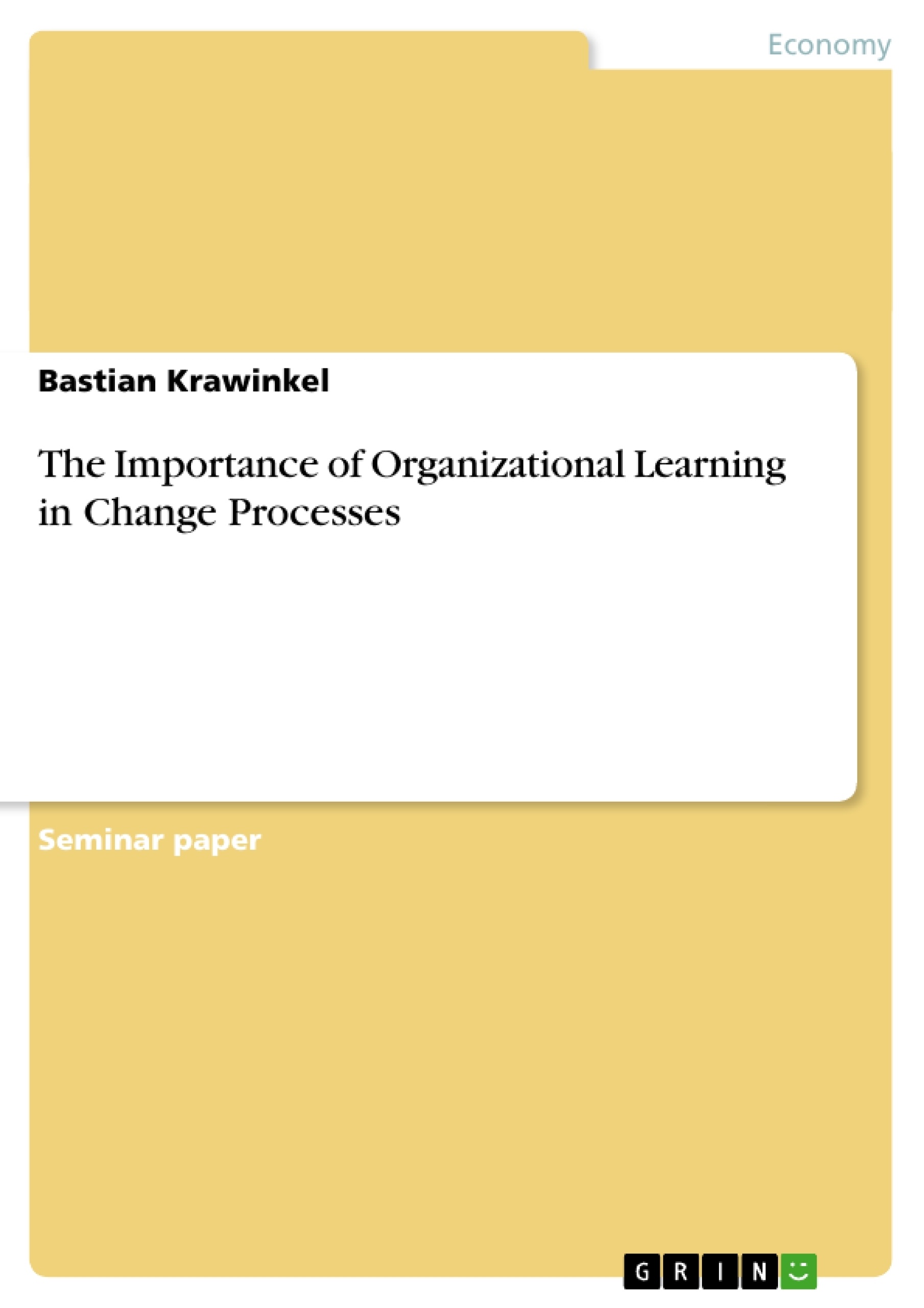During the last decades, the marketplace for organizations developed gradually from a push market into a pull market. In contrast to the environment years before, where demand was high and supply scarce, today’s situation is characterized by an overflow of products whose amount is more than huge enough to satisfy the demand. The resulting customer expectations, as well as the intense international competition, depict an immense challenge for the flexibil-ity of an organization which is operating in this environment. As a consequence of the evolved threats, organizations are forced to adjust quickly and appropriately to new circum-stances in order to remain competitive (Alas, 2007; Appelbaum, St.Pierre, & Glavas, 1998, p. 43).
Recently the perception of the term organization changed towards the definition given by the new system theory which was mainly proposed by Luhmann (2000). While previous defini-tions focused on an organization as being the sum of its single parts, the new system theory perceives it as the manifestation of the communication between its members. In this context, Simon (2007) points out that, as any other system, an organization primarily aims at securing its survival. As an organization is constituted by the communication between its members it has to remain competitive in order to keep the ability to pay its employees without whom communication would not take place. Only if this fundamental need is secured, the focus can shift to concerns going beyond the prior goal of staying alive (pp. 32-33). Thus, as already mentioned earlier, it is crucial for an organization to adapt appropriately to changing circum-stances. When doing so newly retrieved information has to be evaluated among the members and subsequently transformed into action. This processing of information can as well be referred to as organizational learning.
In the following this term paper aims at investigating the main elements of the process of organizational learning and identifies characteristics of diverging outcomes of the processing of information. Furthermore, it is analyzed what fundamental circumstances have to be fulfilled for the procedure of organizational learning to result in sustainable organizational change.
Inhaltsverzeichnis (Table of Contents)
- 1. Introduction
- 1.1. Problem Definition and Objectives
- 1.2. Course of Investigation
- 2. Theoretical Background
- 2.1. Definition of the Term Organization
- 2.2. Distinction of Individual, Collectivistic and Organizational Learning
- 3. Elements of the Organizational Learning Process
- 3.1. Initial Irritation of the System
- 3.2. Internal Treatment of New Information
- 3.2.1. Transmitters of Learning
- 3.2.2. Mediums of Learning
- 3.3. Scope and Transferability of the Learning Outcome
- 4. Relevance for the Organizational Change Process
- 4.1. Characteristics of Learning Processes Leading to Change
- 4.2. Resistance to Change
- 5. Concluding Remarks
Zielsetzung und Themenschwerpunkte (Objectives and Key Themes)
This term paper investigates the main elements of organizational learning processes and identifies characteristics of differing outcomes in information processing. It analyzes the necessary conditions for organizational learning to result in sustainable organizational change within the context of a shifting marketplace from a push to a pull market and the increased competition this creates.
- Definition and significance of organizational learning in relation to organizational change.
- Key elements of the organizational learning process, including information acquisition, processing, and dissemination.
- Characteristics of learning processes that lead to successful organizational change.
- Factors contributing to resistance to change within organizations.
- The role of organizational communication and internal knowledge systems in adaptation and survival.
Zusammenfassung der Kapitel (Chapter Summaries)
Chapter 1: Introduction introduces the problem of organizational adaptation in a competitive market and defines the paper's objectives.
Chapter 2: Theoretical Background provides a definition of organizations as social systems based on Luhmann's work and differentiates between individual, collectivistic, and organizational learning.
Chapter 3: Elements of the Organizational Learning Process details the stages of organizational learning, focusing on the initial system irritation, internal information processing via transmitters and mediums, and the scope of the learning outcome.
Chapter 4: Relevance for the Organizational Change Process explores theories of organizational change and analyzes learning as a crucial component of organizational development. It also examines resistance to change.
Schlüsselwörter (Keywords)
Organizational learning, organizational change, system theory, information processing, resistance to change, market adaptation, competitive advantage, communication, knowledge management.
Frequently Asked Questions
What is organizational learning?
It is the process by which an organization evaluates new information among its members and transforms it into action to adapt to changing environments.
How does system theory define an organization?
Based on Luhmann's work, an organization is perceived as a social system constituted by the communication between its members, aiming primarily at its survival.
What is the difference between individual and organizational learning?
The paper distinguishes between learning at the individual level and the collective processing of information that leads to structural changes within the whole system.
Why is organizational learning crucial for change processes?
In today's "pull market" with intense competition, organizations must learn and adapt quickly to remain competitive and ensure their survival.
What causes resistance to change in organizations?
The study identifies factors within the learning process and internal communication that can lead to resistance among members during organizational transitions.
- Citation du texte
- Bastian Krawinkel (Auteur), 2008, The Importance of Organizational Learning in Change Processes, Munich, GRIN Verlag, https://www.grin.com/document/119078



